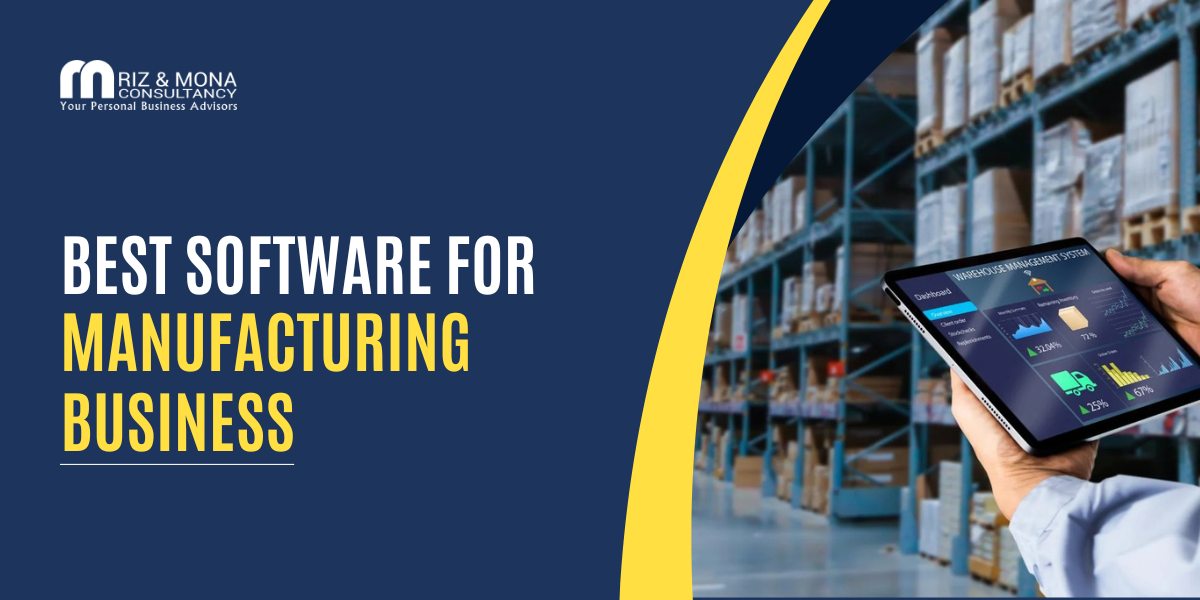Top 12 ERP Manufacturing Software in 2025
Katana Cloud Manufacturing
Katana is a cloud-based ERP designed for small to medium-sized manufacturers. It offers real-time inventory management, production planning, and order tracking. Katana integrates seamlessly with platforms like Shopify, QuickBooks, and Xero, providing a centralized system for managing sales, inventory, and production.
Pricing:
Starter: $179/month (billed annually)
Standard: $359/month
Professional: $799/month
Professional Plus: Starting at $1,799/month
MRPeasy
MRPeasy is tailored for small manufacturers with 10–200 employees. It combines MRP and ERP functionalities, offering production planning, BOM control, procurement, and CRM in one platform. The system is user-friendly and suitable for first-time ERP adopters.
Pricing:
Starter: $49/user/month
Professional: $69/user/month
Enterprise: $99/user/month
Unlimited: $149/user/month (minimum 2 users)
Epicor Kinetic
Epicor Kinetic is a comprehensive ERP solution for mid-sized to large discrete manufacturers. It offers modules for finance, manufacturing, supply chain, project management, and HR. The system is customizable and scalable to meet complex manufacturing needs.
Pricing:
Approximately $125/user/month per module
Exact pricing depends on modules, deployment type, user count, and implementation complexity
Infor CloudSuite Industrial (SyteLine)
Infor CloudSuite Industrial is designed for discrete and process manufacturers. It provides robust planning tools, mixed-mode production support, built-in quality control, and deep configurability, making it suitable for manufacturers requiring tailored workflows.
Pricing:
Starting at $150/user/month
Final costs vary based on the number of users, selected modules, and deployment options
Plex Smart Manufacturing Platform
Plex offers a full-suite ERP and MES platform with real-time machine integration, traceability, compliance, and production control—built for smart factory environments. It’s ideal for manufacturers prioritizing real-time plant-floor integration, such as those in automotive, aerospace, and food processing industries.
Pricing:
Starting at $3,000/month
Subscription pricing; customized quotes available based on company size and module selection
Acumatica Manufacturing Edition
Acumatica is a cloud-native ERP ideal for growing manufacturers. It supports make-to-order, make-to-stock, and engineer-to-order processes with real-time data access. The system offers flexible deployment options and integrates with various business tools.
Pricing:
Custom pricing based on modules and user count
Annual subscription costs typically start at $6,000, with most mid-sized businesses spending $25,000 or more
Oracle NetSuite ERP
NetSuite is a cloud-based ERP suitable for mid-sized manufacturers scaling operations globally. It offers comprehensive modules for finance, CRM, inventory, and production management. NetSuite’s scalability makes it ideal for fast-growing manufacturers.
Pricing:
Starts at approximately $99/user/month, plus a base licensing fee
Implementation fees vary based on company size and module selection
SAP S/4HANA Manufacturing
SAP S/4HANA is designed for large enterprises and multinational manufacturers. It utilizes in-memory computing, real-time analytics, and AI to power enterprise-level production, logistics, and financials—all under one smart cloud platform.
Pricing:
Starts at approximately $1,000/month per user
Pricing varies based on modules and configuration
Microsoft Dynamics 365 Business Central
Business Central is suitable for small to mid-sized manufacturers using the Microsoft ecosystem. It integrates well with other Microsoft tools and provides reliable core functionality for inventory, operations, and accounting at a reasonable entry price.
Pricing:
Essentials: $70/user/month
Premium: $100/user/month
SYSPRO
SYSPRO is suitable for hybrid manufacturing environments, including food, electronics, and industrial sectors. It offers integration with AI, machine learning, and IoT for enhanced operations, along with robust inventory control and financial management features.
Pricing:
Starting at approximately $199/user/month
Final pricing depends on deployment and scale
Fishbowl Manufacturing
Fishbowl is ideal for end-to-end manufacturing management, especially for small manufacturers using QuickBooks. It features robust inventory control and seamless integration with QuickBooks, along with production scheduling and barcode scanning capabilities.
Pricing:
Cloud deployment: Starts at $2,500 per user annually, including support and upgrades
On-premise licensing: Starts around $5,000 per user as a one-time cost Technology Evaluation Centers
Odoo Manufacturing
Odoo is an open-source ERP with a modular design, providing flexibility and customization for various manufacturing needs. It offers comprehensive features encompassing production, quality control, and more, which are perfectly integrated utilizing Odoo apps.
Pricing:
Community version: Free
Enterprise version: $31.10/user/month, plus module fees
Start Your Business Journey with Our Professional Support!
Why ERP Matters for Manufacturing businesses: Real-World Benefits
For manufacturing companies, ERP isn’t just a tech upgrade—it’s often the difference between thriving and barely surviving in a market that demands precision, speed, and adaptability. A well-implemented ERP system can transform how your plant runs, from the factory floor to the finance office.
Below are some of the biggest wins for your business needs you can expect:
Core Functions of ERP Systems: What They Actually Do
Most businesses use too many disconnected tools—spreadsheets for finance, whiteboards for tracking orders, and email for purchase requests. ERP systems bring all that into one place so your team works faster and smarter. Below are the key things ERP software helps with, and what that means in real life:
| Function | What It Does | Examples of ERP Systems |
|---|---|---|
| Finance & Accounting | Handles bookkeeping, tracks cash flow, profits, and helps with future planning. | SAP, QuickBooks Enterprise, Oracle NetSuite |
| Human Resources (HR) | Manages hiring, payroll, employee info, and benefits as your team grows. | Microsoft Dynamics, Workday, BambooHR (add-on) |
| Procurement | Speeds up buying supplies—no more endless emails and lost purchase orders. | SAP Business One, Acumatica |
| Inventory Management | Shows real-time stock levels, helps avoid overstock or running out. | Odoo, Katana, Oracle NetSuite |
| Customer Management (CRM) | Tracks customer info, sales history, and service requests in one place. | Salesforce (add-on), Zoho CRM, NetSuite CRM |
| Sales & Order Management | Processes orders, updates inventory, and keeps shipping on track. | Microsoft Dynamics, Infor CloudSuite |
| Project Management | Helps plan and track progress on client or internal projects. | Odoo, Oracle NetSuite, Monday.com (add-on) |
| Reporting & Dashboards | Turns business data into simple charts and reports for better decisions. | Power BI, Tableau (via integrations) |
What Makes Manufacturing ERP Software Different
Most ERP systems are built for general business tasks like finance, HR, and sales. But manufacturers deal with much more—raw materials, machines, production schedules, changing customer orders, and strict quality rules. A regular ERP might help a little, but to really run a factory well, you need software made for manufacturing. Here’s how a manufacturing ERP goes further than a general one:
| Category | What General ERP Does | What Manufacturing ERP Adds |
|---|---|---|
| Inventory | Tracks stock in and out of warehouses. | Tracks raw materials, work-in-progress, and finished goods with batch tracking. |
| Purchasing | Automates buying and vendor info. | Adds supplier lead times, material planning, and automatic reorder points. |
| Orders | Manages sales orders and billing. | Connects orders to jobs, handles custom specs, and links to production. |
| Scheduling | Basic or missing. | Schedules jobs, machines, and shifts in real time. |
| BOM (Bill of Materials) | Often not included. | Handles multi-level BOMs, version updates, and cost tracking. |
| Shop Floor | Not available. | Tracks jobs, machine status, and worker activity live. |
| Quality | May be limited. | Includes inspections, defect tracking, and safety compliance logs. |
| Equipment Maintenance | Usually separate. | Manages routine and predictive maintenance to avoid breakdowns. |
| Traceability | Rarely offered. | Tracks serial numbers, batches, and full history for audits and regulations. |
Common Mistakes to Avoid When Setting Up ERP in Manufacturing
Setting up ERP software solutions in a factory is never simple. If you rush or skip steps, you can run into big problems like delays, extra costs, or production stoppages. Below are the most common mistakes manufacturers make, and how to avoid them.
How to Choose the Right ERP for Your Manufacturing Business
Different industries need different tools. Choose software that fits the way your factory runs:
-
-
Discrete manufacturing (like furniture or electronics):
Look for tools that handle multiple BOMs, custom orders, and routing.
Try: Epicor Kinetic, Infor CloudSuite Industrial -
Process manufacturing (like food or chemicals):
You’ll need batch tracking, formula tools, and safety rules built in.
Try: Plex, Infor CloudSuite Process -
Custom or make-to-order shops:
You need flexible scheduling, live updates from the floor, and fast quoting.
Try: Katana, JobBOSS², MRPeasy -
Mixed-mode (a mix of custom and stock):
Choose software with workflows you can adjust.
Try: Oracle NetSuite, Acumatica Manufacturing Edition
-
A good ERP should grow with your business. Ask:
-
Can it handle more workers or new locations?
-
Can it work with other currencies or languages?
-
Is there a path to upgrade later?
Systems like Microsoft Dynamics and NetSuite are made for growing businesses. Katana and MRPeasy are great for starting out.
Your ERP should work well with what you already use:
-
Can it connect to your accounting system?
-
Can it work with barcode scanners or online stores?
-
Can it sync with sales and customer tools?
Look at systems like Odoo, Acumatica, and Katana — they’re built to connect with lots of tools.
The software matters, but so do the people behind it:
-
Do they understand manufacturing?
-
Do they offer setup help or local support?
-
What do customers say about their service?
Choosing the right team can save you time, money, and headaches later.
FAQS (Frequently Asked Questions)
How much does manufacturing software cost?
Costs range from $50 to $500+ per user/month for cloud solutions. On-premise systems may involve a one-time license fee ($10,000–$100,000+) plus annual maintenance. Total cost varies based on features, company size, customization, and implementation needs.
How can I measure the success of the manufacturing software implementation?
Track KPIs before and after implementation, such as inventory accuracy, production downtime, on-time delivery rates, and order processing speed. Also monitor user adoption and system uptime to evaluate performance.
What are the types of manufacturing software?
Key types include: ERP (Enterprise Resource Planning), MRP (Material Requirements Planning), MES (Manufacturing Execution Systems), SCM (Supply Chain Management), and QMS (Quality Management Systems).
What is the difference between ERP and MRP?
MRP focuses on material planning and scheduling, while ERP covers the entire business, including finance, HR, CRM, and manufacturing. ERP often includes MRP as a component.
What aspects should I consider when selecting manufacturing software?
Consider your manufacturing type, company size, scalability, integration needs, cloud vs. on-premise preference, and vendor track record in your industry.
Is manufacturing ERP software scalable?
Yes. Modern ERP platforms like NetSuite, Epicor Kinetic, and Infor CloudSuite scale with your business—supporting growth in users, sites, and product lines.
Why is cloud-based manufacturing software gaining popularity?
Cloud ERP offers lower setup costs, real-time access, automatic updates, and easier scalability—ideal for remote teams and growing manufacturers.
What is the need for ERP in the manufacturing industry?
Manufacturers use ERP to connect planning, production, inventory, and finance, reducing manual errors and enabling smarter, faster decisions with real-time data.
Who is food & beverage manufacturing software best for?
Best for companies needing lot traceability, recipe control, expiration tracking, and regulatory compliance. Top choices include Aptean and Plex.
Who is job shop management software best for?
Perfect for custom, small-batch, or engineer-to-order manufacturers with varying job specs. Tools like JobBOSS² and ProShop cater to these needs.



















